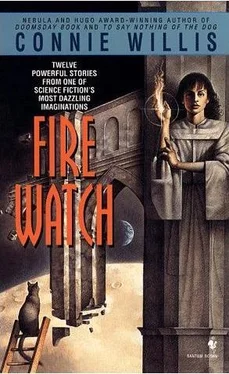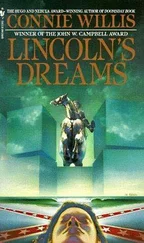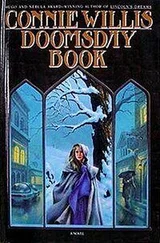Time is the fire in which we burn.
— Delmore Schwartz
History hath triumphed over time, which besides it nothing but eternity hath triumphed over.
— SIR WALTER RALEIGH
While I was writing this story, the one book I could not find was the one I most needed: the Reverend Dean W. R. Matthews’ book about the Fire Watch written just after the war called St. Paul’s in Wartime. It was referred to in every other book I read, and I knew it would have everything in it that I could not find anywhere else: where they slept in the crypt, what they had to eat, how long their shifts were, where the stairs to the roofs were, how the Watch was organized and run.
The book was out of print and not even available at St. Paul’s, though the lady assured me that it was a “wonderful book.” A friend finally managed to get hold of it through a London book search service and sent it to me soon after “Fire Watch” came out.
It is indeed a wonderful book. It has, as I thought, everything I needed and could not find, but too late. Oddly enough, that’s what this story is about.
September 20— Of course the first thing I looked for was the fire watch stone. And of course it wasn’t there yet. It wasn’t dedicated until 1951, accompanying speech by the Very Reverend Dean Walter Matthews, and this is only 1940. I knew that. I went to see the fire watch stone only yesterday, with some kind of misplaced notion that seeing the scene of the crime would somehow help. It didn’t.
The only things that would have helped were a crash course in London during the Blitz and a little more time. I had not gotten either.
“Traveling in time is not like taking the tube, Mr. Bartholomew,” the esteemed Dunworthy had said, blinking at me through those antique spectacles of his. “Either you report on the twentieth or you don’t go at all.”
“But I’m not ready,” I’d said. “Look, it took me four years to get ready to travel with St. Paul. St. Paul. Not St. Paul’s. You can’t expect me to get ready for London in the Blitz in two days.”
“Yes,” Dunworthy had said. “We can.” End of conversation.
“Two days!” I had shouted at my roommate Kivrin. “All because some computer adds an ’s . And the esteemed Dunworthy doesn’t even bat an eye when I tell him. ‘Time travel is not like taking the tube, young man,’ he says. ‘I’d suggest you get ready. You’re leaving day after tomorrow.’ The man’s a total incompetent.”
“No,” she said. “He isn’t. He’s the best there is. He wrote the book on St. Paul’s. Maybe you should listen to what he says.”
I had expected Kivrin to be at least a little sympathetic. She had been practically hysterical when she got her practicum changed from fifteenth-to fourteenth-century England, and how did either century qualify as a practicum? Even counting infectious diseases they couldn’t have been more than a five. The Blitz is an eight, and St. Paul’s itself is, with my luck, a ten.
“You think I should go see Dunworthy again?” I said.
“Yes.”
“And then what? I’ve got two days. I don’t know the money, the language, the history. Nothing.”
“He’s a good man,” Kivrin said. “I think you’d better listen to him while you can.” Good old Kivrin. Always the sympathetic ear.
The good man was responsible for my standing just inside the propped-open west doors, gawking like the country boy I was supposed to be, looking for a stone that wasn’t there. Thanks to the good man, I was about as unprepared for my practicum as it was possible for him to make me.
I couldn’t see more than a few feet into the church. I could see a candle gleaming feebly a long way off and a closer blur of white moving toward me. A verger, or possibly the Very Reverend Dean himself. I pulled out the letter from my clergyman uncle in Wales that was supposed to gain me access to the dean, and patted my back pocket to make sure I hadn’t lost the microfiche Oxford English Dictionary, Revised, with Historical Supplements , I’d smuggled out of the Bodleian. I couldn’t pull it out in the middle of the conversation, but with luck I could muddle through the first encounter by context and look up the words I didn’t know later.
“Are you from the ayarpee?” he said. He was no older than I am, a head shorter and much thinner. Almost ascetic looking. He reminded me of Kivrin. He was not wearing white, but clutching it to his chest. In other circumstances I would have thought it was a pillow. In other circumstances I would know what was being said to me, but there had been no time to unlearn sub-Mediterranean Latin and Jewish law and learn Cockney and air raid procedures. Two days, and the esteemed Dunworthy, who wanted to talk about the sacred burdens of the historian instead of telling me what the ayarpee was.
“Are you?” he demanded again.
I considered whipping out the OED after all on the grounds that Wales was a foreign country, but I didn’t think they had microfilm in 1940. Ayarpee. It could be anything, including a nickname for the fire watch, in which case the impulse to say no was not safe at all. “No,” I said.
He lunged suddenly toward and past me and peered out the open doors. “Damn,” he said, coming back to me. “Where are they then? Bunch of lazy bourgeois tarts!” And so much for getting by on context.
He looked at me closely suspiciously; as if he thought I was only pretending not to be with the ayarpee. “The church is closed,” he said finally I held up the envelope and said, “My name’s Bartholomew. Is Dean Matthews in?”
He looked out the door a moment longer as if he expected the lazy bourgeois tarts at any moment and intended to attack them with the white bundle; then he turned and said, as if he were guiding a tour, “This way, please,” and took off into the gloom.
He led me to the right and down the south aisle of the nave. Thank God I had memorized the floor plan or at that moment, heading into total darkness, led by a raving verger, the whole bizarre metaphor of my situation would have been enough to send me out the west doors and back to St. John’s Wood. It helped a little to know where I was. We should have been passing number twenty-six: Hunt’s painting of “The Light of the World”—Jesus with his lantern—but it was too dark to see it. We could have used the lantern ourselves.
He stopped abruptly ahead of me, still raving. “We weren’t asking for the bloody savoy, just a few cots. Nelson’s better off than we are-at least he’s got a pillow provided.” He brandished the white bundle like a torch in the darkness. It was a pillow after all. “We asked for them over a fortnight ago, and here we still are, sleeping on the bleeding generals from Trafalgar because those bitches want to play tea and crumpets with the tommies at victoria and the hell with us!”
He didn’t seem to expect me to answer his outburst, which was good, because I had understood perhaps one key word in three. He stomped on ahead, moving out of sight of the one pathetic altar candle and stopping again at a black hole. Number twenty-five: stairs to the Whispering Gallery the Dome, the library (not open to the public). Up the stairs, down a hall, stop again at a medieval door and knock. “I’ve got to go wait for them,” he said. “If I’m not there they’ll likely take them over to the Abbey. Tell the Dean to ring them up again, will you?” and he took off down the stone steps, still holding his pillow like a shield against him.
He had knocked, but the door was at least a foot of solid oak, and it was obvious the Very Reverend Dean had not heard. I was going to have to knock again. Yes, well, and the man holding the pinpoint had to let go of it, too, but even knowing it will all be over in a moment and you won’t feel a thing doesn’t make it any easier to say, “Now!” So I stood in front of the door, cursing the history department and the esteemed Dunworthy and the computer that had made the mistake and brought me here to this dark door with only a letter from a fictitious uncle that I trusted no more than I trusted the rest of them.
Читать дальше












